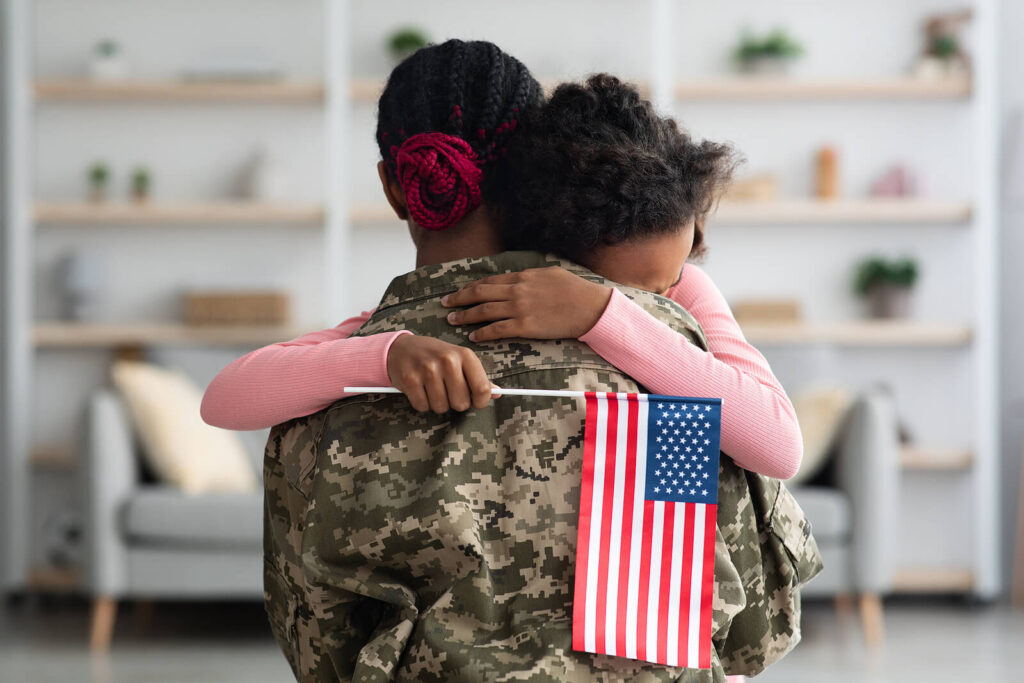The mental health of America’s youth is in crisis, and it stands to reason that military-connected youth are facing the same crisis, if not worse due to the added stressors faced by military families.
The data about American youth are troubling. According to the Centers for Disease Control and Prevention, In 2021 more than 42% of students felt persistently sad or hopeless and nearly one-third experienced poor mental health. More than 22% of students seriously considered attempting suicide and 10% attempted suicide in the same year.
The White House issued a statement in May asserting that the U.S. “is experiencing an unprecedented youth mental health crisis. More than half of parents express concern over their children’s mental well-being, and there is now undeniable evidence that social media and other online platforms have contributed to our youth mental health crisis.”
The implications of such a crisis are far-reaching, and they are the reason that the organization I lead, the Military Child Education Coalition, is focusing its annual training summit July 24 through 26 in Washington, D.C., on supporting the well-being and mental health of military-connected children. MCEC’s Global Training Summit brings together experts, youth-serving professionals and military-connected students to address the most pressing issues impacting the education of military-connected students.
For 25 years, the Military Child Education Coalition has been dedicated to delivering high-quality programs and services to meet the needs of military-connected students, parents and professionals. MCEC is a proud leader and partner in enhancing the well-being of military families dealing with frequent transitions in an out of communities and extended separation from a parent or parents, which can only exacerbate youth mental health issues.
Senior leaders of the military, including chairmen of the Joint Chiefs of Staff and military service chiefs, have presented at the event over the years. This year, in addition to celebrating 25 years of making a difference in the educational opportunities for military youth, MCEC takes a closer look at the mental health crisis and other key issues impacting youth.
The link between military-connected youth and national security
One crucial factor underscoring the urgency of this year’s summit is the link between military-connected kids and national security. Like any parent, those who serve our nation want the best opportunities for their children. Concern over their children’s well-being impedes their ability to do what the nation has asked of them. Resources and programs that support educational opportunities and mental health for military children allow our service members peace of mind, and they are more likely to stay in the military if their family’s needs are being met. They are more likely to leave if not.
In addition, the military relies heavily on the children of servicemembers to fill out the ranks — according to the Army Recruiting Command, 79% of recruits in 2019 had a relative who served. While the services do not deliberately cultivate military kids as part of the recruiting pool, the American people would be well advised to ensure that those who are most likely to comprise our nation’s military have been afforded every opportunity to be well-adjusted, healthy and broadly educated.
Such an approach helps ensure that the U.S. military of the future is equipped, not just in armaments and technology, but also with the mental stamina and breadth of educational experiences to succeed as the ambassadors, warriors and statesmen we will need.
We ask much of our military service members, and time and again they answer the call. As one of the most trusted institutions in the country, the military is comprised of individuals who embrace duty and understand sacrifice. Their family members may not have “signed up,” but they are nonetheless impacted by the requirements military service entails.
MCEC’s Global Training Summit is the nation’s essential forum for developing the policies and programs necessary for overcoming the obstacles military-connected kids face as a result of a parent’s service to the nation. With the ongoing mental health crisis, the summit is more important than ever.







